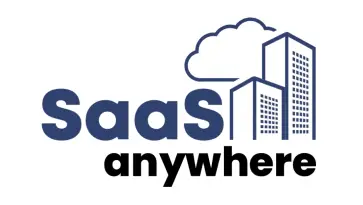
Danny Gargus, September 12, 2022
Get the Best Solution for
Your Business Today!
With all the talk about cloud computing these days, does it really make sense to move your Cognos Analytics instance to the cloud? What functionality and benefits are gained or lost when doing so? What about when starting from scratch? What is the best option for your Cognos Analytics (CA) environment? There is no one-size-fits-all when it comes down to it. We’ll discuss the differences which, hopefully, will help you make an informed decision.
Table of Contents
Options
As of 11.2.2, IBM has five different offerings that they use to differentiate their product and all of these offerings are within the sphere of IBM. They are:
- Cognos Analytics on-Premises
- Cognos Analytics on-Demand
- Cognos Analytics on Cloud Hosted
- Cognos Analytics for Cloud Pak for Data
- Cognos Analytics Trial
Cognos Analytics Trial is really a 30-day version of the Premium version of Cognos Analytics on-Demand with the same functionality. The biggest difference is that there is a maximum of 5 users (and it’s only 30 days).
Cognos Analytics for Cloud Pak for Data is a Cognos Analytics add-on in IBM Cloud Pak for Data (CP4D). If you have CP4D already, this may be a good option to get started with CA.
Cognos Analytics on-Premises is the version that is installed and controlled by you in your environment wherever you choose to use it. This may even mean using it in AWS or Azure. Even though it is hosted in the cloud, you are still the controller of all things related to installation, support, maintenance, etc.
Cognos Analytics on-Demand is hosted in IBM’s cloud and has 2 pricing tiers – Standard and Premium that control what capabilities and options you have. Note that the trial version above is the Premium on-Demand version. Also note that if you already have the old Plus version of on-Demand, that is still available. New users will have to choose between Standard and Premium. These versions are supported by IBM which means that all maintenance and many administrative tasks are performed by them. When new versions of CA are released, your on-demand version will be upgraded automatically shortly afterward. They do give you a few days’ notice that this will be occurring.
Cognos Analytics Cloud Hosted version is also hosted in IBM’s cloud (obviously, hence the name) but gets you much more functionality than even the Premium on-Demand version. With this version, you are allowed to have one of the three latest versions of CA which means that you don’t have to upgrade every time a new version is released. IBM will also perform the upgrade for you but in consultation with you first, so you know what’s happening and when.
Functionality
The functionality differs widely based on the product you choose. Let’s look at the on-Premises version first. Everything that we’ll discuss under functionality – no matter the version – is available in the on-Premises version of CA. If you require any of the below features or functionality then on-Premises is really the only way to go as these are ONLY offered on-prem.
- Dynamic Cubes – This is a big one. Many companies use dynamic cubes and it’s just not available in the hosted versions.
- Analysis Studio – This legacy studio can be explicitly enabled only in the on-prem version.
- Query Studio – Same as Analysis Studio
- PowerPlay Studio – Same as Analysis Studio
- Routing Rules – If you have multiple dispatchers and use rules to route the traffic to them then use on-Prem. Interestingly enough, you can have multiple dispatchers in all of the cloud versions – you just can’t use routing rules with them.
- Compatible query mode (CQM) data sources – This is another big one. IBM has made the push to Dynamic query mode (DQM) data sources so if you’re still using CQM then you won’t be able to report in the cloud versions.
- Access to the underlying file system – This may be less important but if you need access to that, you can’t get to it in the cloud versions.
- Access to an on-premises printer – If you need to print directly to a printer then on-prem is the only way to go.
- Works with Motio CI – If you are a Motio CI user, IBM has a disclaimer that it *might* work with their Cloud Hosted version but it’s not supported by IBM and CA doesn’t support some of the plug-ins that Motio uses.
- Kerberos Client for SSO – If you use Kerberos for authentication for single sign-on you won’t be able to use it in the cloud versions.
So that’s quite the list! If you need any of the above then the cloud versions probably aren’t right for you unless you are looking to change/upgrade/enhance your environment. For instance – you’ve been using the studios with CQM data sources but you’re weaning your users off of the studios and redeveloping your data models to be DQM and want to move to the cloud.
Administration Tasks
There are quite a few admin tasks that are not available or have limited availability in the cloud versions. Full administration is available in the CP4D version but limited in the other cloud versions to only the following options under Manage: People (Accounts only), Data server connections, Customizations, Collaboration, Storage, and Secure Gateway. For CA on Cloud Hosted, the System administrator role is not available.
- Report scheduling is not available in the Standard version of on-Demand but is in the Premium version.
- Uploading of fonts and images is only available in the Cloud Hosted version. This doesn’t make sense to me since most companies want to brand their environment and use their own logos. Maybe IBM will change this soon.
- Single sign-on is not available in the on-demand version.
- If you want PVU pricing it is available only in the Cloud Hosted version.
- If you need multiple environments (such as development, test, qa, and production), that is not offered in the on-Demand version.
- You cannot import and export deployments between environments with the on-demand version with the exception of a one-time initial migration from on-prem or on-cloud to on-demand.
Environment
There are some differences in the environment as well to consider.
- Explorations are not available in the Standard version of on-demand.
- Jupyter Notebooks are not available for on-Demand. They are available for Cloud Hosted with a subscription to Watson Studio and they are included in CP4D.
- IBM Cognos for Microsoft Office cannot be used with on-Demand.
- The Cognos SDK (Software Development Kit) does not work with on-Demand or CP4D. It is only available with Cloud Hosted.
- Access to PowerCubes is only available in the Cloud Hosted version.
- Access to Planning Analytics as a data source is not available in CP4D.
- Report Bursting is not available in the on-demand version.
- You cannot create jobs in the on-demand version.
- Saving report output to the file system is not available in on-Demand or CP4D versions.
- There is a minimum of 100 user licenses with the Cloud Hosted version.
- The mobile apps (IBM CA Reports and IBM CA Mobile) do not work with CP4D and there are restrictions for the other cloud versions depending on OS versions and such.
This does not encompass the entire gamut of differences for each version but we’ve touched on most of the major ones.
Conclusion
Cognos Analytics on Demand has many restrictions and is probably best suited for small companies that want to have some analytics/dashboards but don’t have the IT staff to manage the environment.
Cognos Analytics for Cloud Pak for Data is a good option if you already have CP4D or are looking to move to a cloud-native data and AI platform. It has many of the capabilities of the on-Premises version but does have some restrictions.
Cognos Analytics on Cloud Hosted is a very good option if you want most of the control and capabilities but just don’t want to manage upgrades and server administration tasks. But remember, you will have to purchase a minimum of 100 licenses to get started.
But for full capabilities, Cognos Analytics on Premises is the way to go whether you actually have it on-prem or hosted in AWS, Azure, etc. And as always, if you need help deciding which is the best decision for you or your company, let us know. We’re here to help!
Next Steps
If you’re interested in receiving some guidance or additional help deciding which Cognos offering is best for your organization, send a message our way! We hope you found this article informative. Be sure to subscribe to our newsletter for PMsquare original articles, updates, and insights delivered directly to your inbox.









